Media Literacy Meets Congressional Testimony
A MiddleWeb Blog
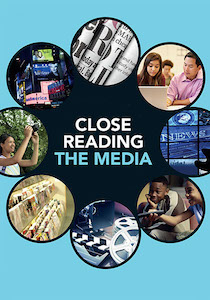 What is the role of the media? That’s one of the Social Studies teaching topics included in the learning standards of many states. It is also the question that I recently suggested Social Studies educators ask their students to consider.
What is the role of the media? That’s one of the Social Studies teaching topics included in the learning standards of many states. It is also the question that I recently suggested Social Studies educators ask their students to consider.
Do students understand the role of journalism and how journalists do their jobs? I believe teaching students about the news media’s role is extremely important, especially in an age when many of them receive their “news” via social media and are increasingly distrustful of news sources.
The job of journalists – which students need to understand – is to cover timely events, to hold people (including those in power) accountable, and to investigate (by asking questions and digging for clues) in order to bring facts and truth to readers and viewers. Journalists also strive to deliver news in a timely manner.
Throughout modern American history, the media (radio, TV, newspapers) have been an integral part of bringing important events to us. Franklin Roosevelt’s “fireside chats” come to mind as does Edward R Murrow’s World War II broadcast at the liberation of the Buchenwald extermination camp.
With the advent of C-SPAN and later CNN (and other network and cable news outlets) we gained unprecedented access to important public events, especially those in Washington DC. As internet news sources proliferate, access is becoming nearly universal.
When cameras and microphones enter Congressional hearing rooms, they allow us to see and hear our elected leaders and to understand how the process works. Since many of us (and our students) will never have a chance to be “in the audience” for an important event, TV, radio and digital media bring it to us, making us feel as if we are there.
Hearings That Attracted Millions – Thanks to The Media
The recent broadcast of the public testimony of Donald Trump’s former attorney Michael Cohen in front of the House Intelligence Committee of Congress brings all this to mind. But there have been other memorable hearings in modern American history that have changed the course of our nation.
The House Un-American Activities Committee (McCarthy) hearings
HUAC “was created in 1938 to investigate alleged disloyalty and subversive activities on the part of private citizens, public employees, and those organizations suspected of having Communist ties.” (Source) The committee’s work grew out of American fears about Communism following World War II.
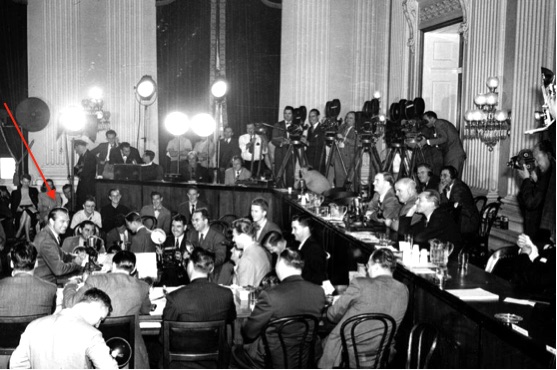
The red arrow points to movie star Gary Cooper being questioned.
Students interested in current events should become familiar with modern historical figures like Alger Hiss and Senator Joseph McCarthy. Hiss “was an American government official who was accused of being a Soviet spy in 1948 and convicted of perjury in connection with this charge in 1950.” (Source)
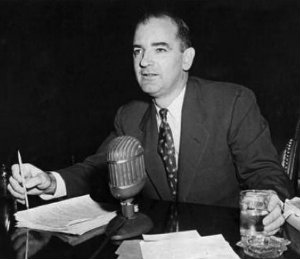
Senator Joseph McCarthy
McCarthy became a household name in the 1950s when he chaired HUAC hearings. His frequent subpoenas of famous Hollywood stars and executives and other notables prompted critics to label the hearings a “witch hunt” and the term McCarthyism was coined to describe his efforts to gain power and attention by “rooting out” Communists where ever he could claim to find them. (See a list of Victims of McCarthyism.)
The Spring 1954 hearings were carried live on television by the ABC TV network and the now-defunct Dumont network. Among the investigating lawmakers was young Congressman Richard Nixon. The televised hearings stretched over 36 days and an estimated 80 million people saw at least part of the proceedings. A search of YouTube reveals a number of video excerpts from the hearings. This animated TED Channel lesson “What Is McCarthyism” is an excellent resource.
Most famous line to come from the hearings: “Have you no sense of decency, sir, at long last?” by Attorney Joseph Welch, directed to Senator Joe McCarthy.
Recommended resource: “Good Night & Good Luck”, an Oscar-nominated 2005 motion picture which profiled CBS newsman Edward R Murrow and his challenge of McCarthy during a broadcast of the “See It Now” television series.
Watergate Hearings (1973)
In the early 1970s, President Richard Nixon’s administration came under scrutiny by the Congress. At the time both the New York Times and the Washington Post were uncovering details about what at first appeared to be a minor burglary of the Democratic National Committee’s DC headquarters. But it was much more. The burglary investigation and related matters eventually led all the way to Nixon, who resigned from office.
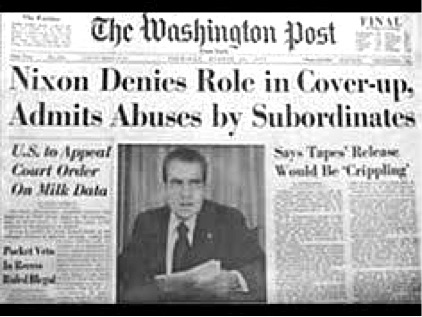
Initially all three major TV networks at the time (NBC, ABC, CBS) broadcast some of the hearings. But PBS broadcast the entire hearings to more than 150 of its affiliated stations across the country. (Source) The hearings have been digitized and are available for viewing in their entirety here.
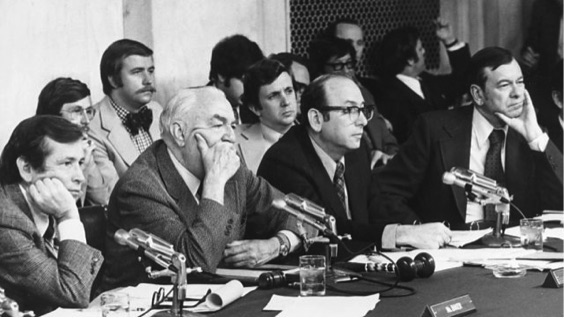
The televised Watergate hearings, with Senator Baker, left, seated by Chair Sam Ervin
Most famous line to come from the hearings: “What did the President know and when did he know it?” by Senator Howard Baker.
Recommended Resources: The investigative work of Bob Woodward and Carl Bernstein, two reporters at the Washington Post, was the subject of a popular film, “All The Presidents Men” (1976). The movie was based on the book of the same name written by Woodward and Bernstein (who also wrote The Final Days about Nixon’s failed effort to retain power). The film was recognized with many awards including the Academy Award for adapted screenplay.
Iran-Contra Hearings (1987)
The televised hearings were the result of the work of two Congressional investigating bodies: the House Select Committee to Investigate Covert Arms Transactions with Iran and the Senate Select Committee on Secret Military Assistance to Iran and the Nicaraguan Opposition. (Source)
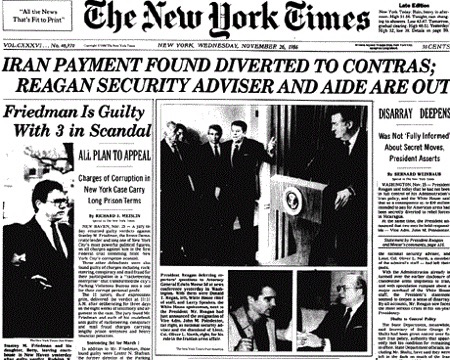
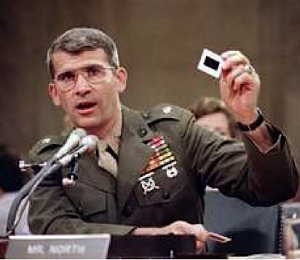
Oliver North before a congressional committee
Riveting testimony came from Lieutenant Colonel Oliver North who worked for the National Security Council. An investigation by the White House revealed that millions of dollars were missing. It was North who admitted under oath that he “had diverted the missing funds to the Contras in Nicaragua, who used them to acquire weapons” in violation of a Congressional mandate. (Source)
“ABC, NBC, CBS, Public Broadcasting Service and Cable News Network (CNN) carried the morning and afternoon sessions live to millions of viewers.” (Source)
Famous line from the hearing: “I came here to tell you the truth – the good, the bad and the ugly.” by Lt. Col. Oliver North.
Recommended resource: Video clips from the hearings recorded by CSPAN.
Clarence Thomas Supreme Court Confirmation Hearings (1991)
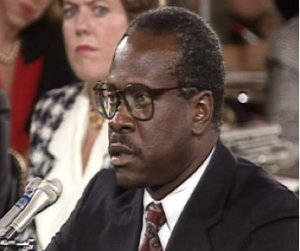
Clarence Thomas addresses Senators as his wife looks on.
Normally, the confirmation hearing of a judge to a seat on the US Supreme Court would not attract much attention. But this was different. Clarence Thomas had been nominated by President George H.W. Bush to succeed the retiring Thurgood Marshall. The confirmation hearings proceeded without incident until investigators got word of behavior by the judge toward some who had worked with him.
Prior to the hearings, a former staffer of Judge Thomas, Anita Hill, came forward to reveal that he had sexually harassed her during her time working with him. She testified at the hearings which were broadcast live. Some have suggested parallels with the recent hearing for Supreme Court nominee Brett Kavanaugh. (Source)
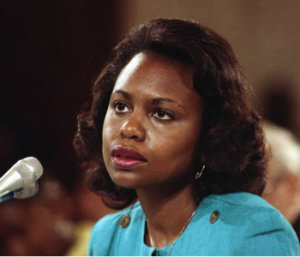
Anita Hill responds to Senators’ questions.
An estimated 30 million homes tuned in to some or all of the Thomas hearings. “The ratings for the hearing so reduced the number for CBS’s coverage of the Minnesota-Toronto playoff game, which ran against the hearing coverage on the two other major networks, that the game apparently attracted the smallest audience of any post-season baseball game ever.” (Source)
Famous words from the hearing: “This is a circus. It’s a national disgrace. And from my standpoint, as a black American, it is a high-tech lynching for uppity blacks who in any way deign to think for themselves, to do for themselves, to have different ideas, and it is a message that unless you kowtow to an old order, this is what will happen to you. You will be lynched, destroyed, caricatured by a committee of the U.S. Senate rather than hung from a tree,” by Judge Clarence Thomas.
Recommended Resource: In 2016, HBO broadcast the film “Confirmation,” a docudrama based on the Thomas/Hill story. Actress Kerry Washington played Hill.
Michael Cohen Hearings Before the House Oversight Committee (2019)
On February 27, 2019, Michael Cohen, former lawyer to President Donald Trump, went before Congress in a public hearing to testify what he knew about actions his client took before taking office and after. Cohen had previously testified and was found to have lied and was sentenced to prison.
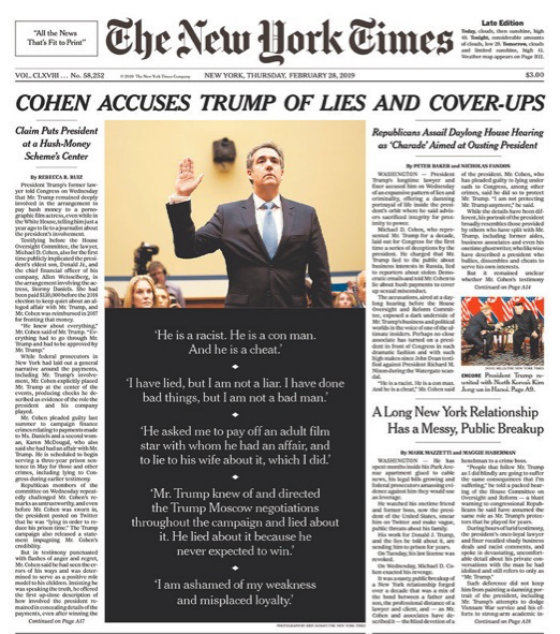
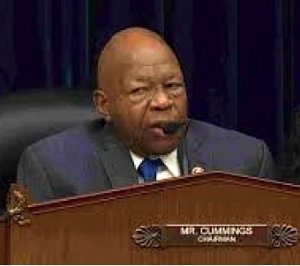
Chair Elijah Cummings led the questioning of Michael Cohen.
All three major TV networks carried the hearings live as did many of cable news networks. At least 13 million people saw the hearings, according to ratings company Nielsen. (Source)
Famous line from the hearing: “I am ashamed because I know what Mr. Trump is. He is a racist. He is a con man. He is a cheat,” by Michael Cohen.
Why Is All This “Media Literacy”?
It is more important than ever that 21st century students recognize the vital role that media and journalism play in American democracy. In a time when “fake news” and distrust are at all time highs, it is critical that we as educators reaffirm the importance of a free and unhindered press.
Exposing students to broadcasts and other actual news accounts of past historical events is important because it helps bring those events to life, perhaps better than reading summaries in a textbook.











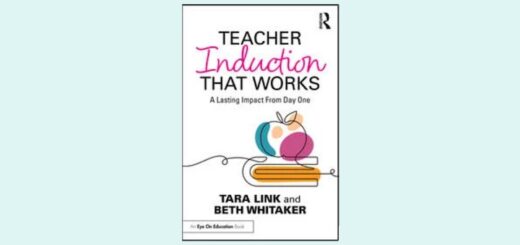


















Bringing such events to life is, in itself, a learning experience. Wisdom is gained when current life lessons are gleaned from the connections made between the past and the present, between “other people” and me. Thank you for helping to make this connection, Frank!
Update: The HIll reports that the Cohen testimony attracted 15.8 million viewers. 13 million are reported to have viewed Robert Mueller’s testimony before the House Judiiciary and intelligence committtees. (audience numbers are from Nielsen Media Research) Source: The Hill, 11/11/19